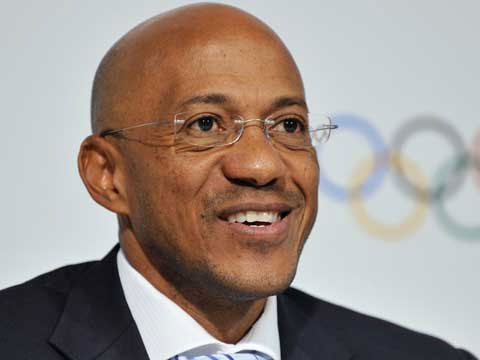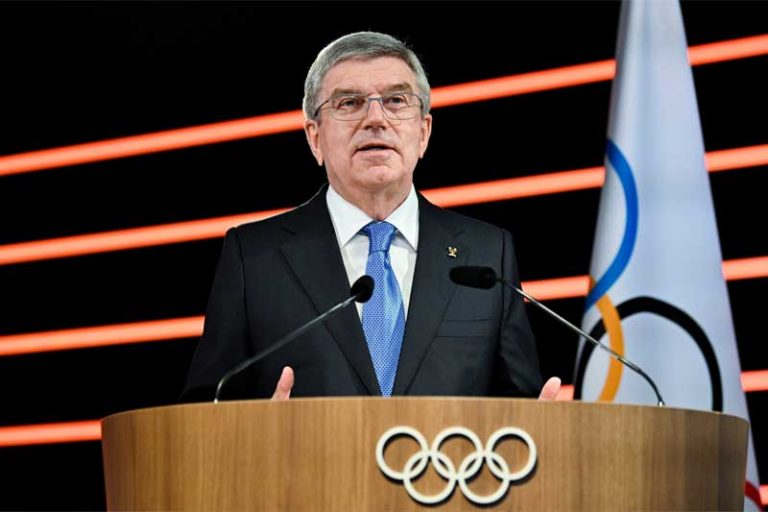
BidWeek, Reporting From Toronto, Canada – When information is scarce, a single sentence can be amplified exponentially – and mean different things.
That’s what happened this week when Australian radio presenter Ben Fordham asked former International Olympic Committee (IOC) Vice President John Coates to list the potential rivals to the 2032 Olympic Games bid from Australia’s Queensland State.
Coates answered by telling a news radio audience in Australia “the Vice President of Indonesia has put in a letter.”
“The Koreans say they’d like a joint bid with South and North Korea.
Then he added matter-of-factly “India was looking at it but they are looking now at the Youth Olympic Games,” before adding “that’s it.”
If that final sentence seems innocent enough, then you will need some further context.
John Coates is a hard-working IOC member who wears many hats in the Olympic world. He was Vice President of the IOC and has access to a lot of privileged information that is not in the public domain. In that role he worked diligently to reform the Olympic site selection process, spearheading a group that last year launched significant changes aimed at lowering hosting costs and eliminating potential ‘losers’ .

at the 135th IOC Session in Lausanne, Switzerland – January 10, 2020 (Photo: Christophe Moratal/IOC)
In addition, he is President of the Australian Olympic Committee (AOC) and has become a key functional advocate for Queensland’s bid to host the Olympic Games.
So, when asked about the bid – live on Australian radio – which hat was he wearing? It was probably an awkward moment for him.
Leading up to his comments about potential opponents for 2032, he spoke in defense of Queensland as it faces attacks from a domestic political party. The fringe right-wing One Nation Party has launched a petition to end the bid, claiming costs will soar and taxpayers won’t be able to afford to pay for the Games.
In the same vein, he then responded to the follow-up question about other countries that may be pursuing bids. Clearly, his answer was designed to downplay hurdles that the Queensland bid could face on the international stage – elevating the opportunity that is available to Australians. Coates later added a dismissal of a possible German bid, explaining that it “hasn’t eventuated.”
Coates was speaking as President of the AOC, brushing the other bids to the side.

But here’s the problem. The new IOC bid process, in part designed by Coates, eliminates many formalities. There are no longer deadlines or milestones when applicants and candidates are expressly named. Interested National Olympic Committees now enter a dialogue with the IOC at any time – and may lose interest at any time – without any announcement.
The IOC has said that it could name a city it wants to include in a “targeted dialog” at any time – meaning they’ll focus on this city with the intent to have it elected at an IOC Session. They also say they will select the city “when the timing is right.”
When the President of the AOC says India has moved away from an Olympic bid and is now looking at a Youth Olympic Games bid, it can be taken lightly and with the understanding that it might be rhetoric by a rival who may not have all the details.
But when an IOC member who chaired the Working Group for Future Host Elections says the same – it’s big news, especially for stakeholders and the public in India. It’s de facto official.
Indian Olympic Association (IOA) President Narinder Batra said Wednesday, the same day, “we want to bid for 2032 Olympics,” while describing a medal-winning strategy to increase India’s haul ahead of the Tokyo, Paris and Los Angeles Olympics.

India made its official bid announcement on December 30.
If a former IOC Vice President, especially one who is closely connected with the bid process, says India has moved on – we have to believe that is the shared opinion of the IOC.
It wasn’t. After GamesBids.com reported the news Wednesday, the IOC was quick to contact us about the discrepancy.
An IOC spokesperson rebutted Coates’ remarks in a statement to GamesBids.com explaining “the Indian Olympic Association continues to be in dialogue with the IOC over the possible hosting future Olympic Games.”
So what’s really going on? Was Coates simply pandering to an Australian audience, forgetting that online radio has an international scope?
“India was looking at it but they are looking now at the Youth Olympic Games.” – IOC Member John Coates
Was it a Freudian slip, with Coates knowing from an IOC perspective that India is not being considered as a legitimate contender, and it’s the IOC that is pandering to India and its dream of hosting the Games?
Now we can only guess. And that is not fair or transparent to the general public in Australia and India who need to know where their bids stand.
As I’ve written in this space before, I believe the new bid process will help the IOC make better strategic decisions when siting the Olympic Games that will benefit both the IOC and the hosts – and the Olympic Movement. I’ve also written about the risks of this new process that will be cloaked in darkness and lacking in transparency.
In the past the IOC was good at withholding comments about cities that were considering bids – keeping any information confidential until the big announcement was made on application deadline day. It was fair and left the conversation in the hands of those interested in bidding. Observers knew nothing was official until it was… official.
The list of contenders was clearly documented, and their evaluation and standing after the final all-members vote was clear. Anomalous remarks could be checked against the official line.
But the new process is inherently ambiguous, and any words made by officials in or out of context can be construed as fact.
Further muddying the situation is the conflict of an IOC Executive who is also the architect of the new bid process and now the champion of the Queensland 2032 Olympic bid. Unfortunately this multi-role mentality is not uncommon in the international sporting world, and is generally accepted.
That makes it even more imperative to step up the transparency of the new Olympic bid process.
The media in India were rightfully confused by that single sentence spoken on Wednesday. Those in Australia were mislead.
But it will get even more difficult from here when some cities make the final lap of the process while others are disqualified. They’ll wonder; what really happened behind the curtains?


